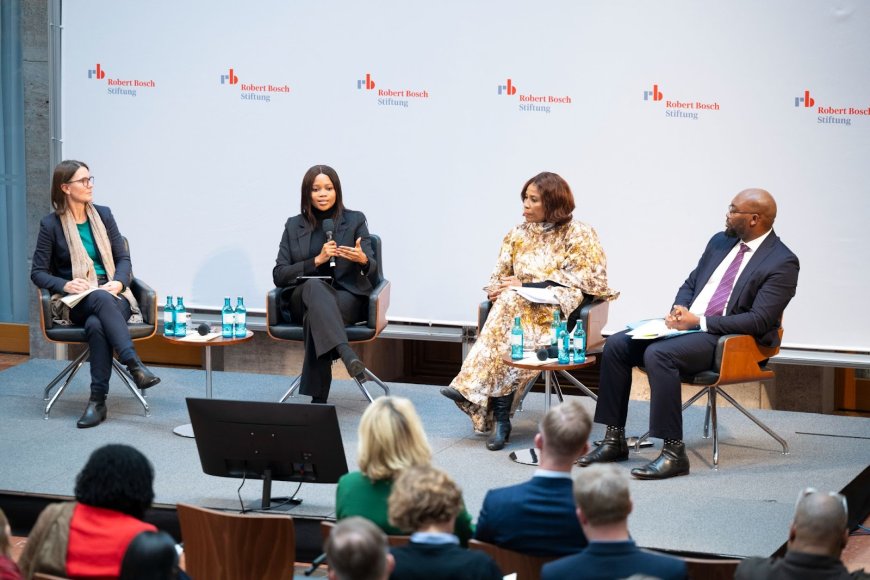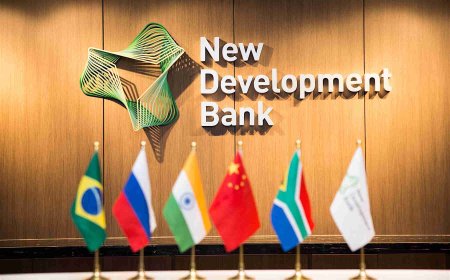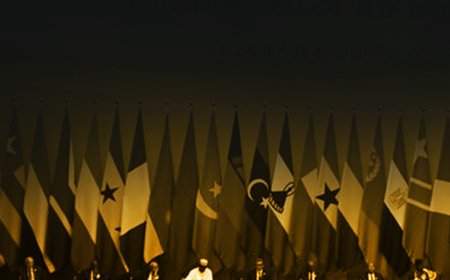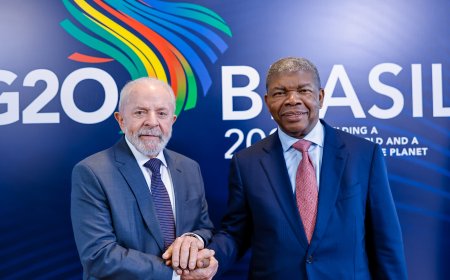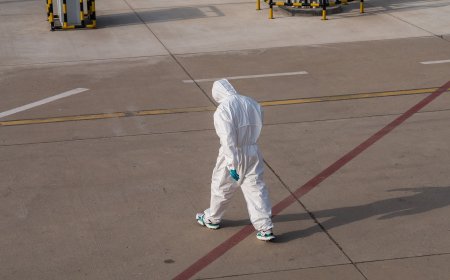Summary
- In January 2024, APRI hosted the first iteration of the Africa in The World High-Level Roundtable series in partnership with the Bundesministerium für wirtschaftliche Zusammenarbeit und Entwicklung (BMZ).
- The keynote speaker was Svenja Schulze, Federal Minister for Economic Development and Cooperation.
- Other speakers included Birgit Pickel, Director-General for Africa in the Federal Ministry for Economic Cooperation and Development (BMZ), Hon. Bogolo Joy Kenewendo, former Cabinet Minister of Investment, Trade and Industry of Botswana and Ahunna Eziakonwa, UNDP Assistant Administrator and Regional Director for Africa.
- The central question of the event and discussion was: How promising is the current model for the future?
- The strategy presented last year by the BMZ provides a good foundation for critically learning about colonial history in Germany and decolonizing thinking, but we’ve not yet reached a level of development cooperation that takes place on an equal footing.
Introduction
The imperative to transform Africa-Germany relations warrants no qualification. It informs a broader, long-overdue conversation around Africa-Europe relations, which are steeped in coloniality. As Schlegel and Ziai (2021) argue, these relations must be redefined. The Africa-Germany relationship is one of the fastest-growing partnerships in terms of institutionalisation, political standing, resource disbursement and preference linkages (Gwatiwa, 2022). Hence, it is crucial to reimagine and reposition this relationship.
In this context, the Africa in the World High-Level Roundtable Series, organised by APRI - Africa Policy Research Institute, kicked off with an inaugural session titled ‘Reimagining Development Cooperation: Pragmatic Pathways for Africa-Germany Relations’ on January 24th, 2024, at the Robert Bosch Stiftung in Berlin, Germany. The keynote speaker, Svenja Schulze, Federal Minister for Economic Development and Cooperation, opened the event, stating that Africa-Germany relations must be ‘refocused’ instead of being reimagined as the event title suggests.
The panelists included Birgit Pickel, Director-General for Africa in the Federal Ministry for Economic Cooperation and Development (BMZ); Honourable Bogolo J. Kenewendo, a former Minister of Investment, Trade and Industry in Botswana; and Ahunna Eziakonwa, UNDP Assistant Administrator and Regional Director for Africa. Henry Alt-Haaker, Senior Vice President of Robert Bosch Stiftung, gave welcome remarks. The moderator for the event was Dr. Olumide Abimbola, Executive Director of APRI - Africa Policy Research Institute. The event attracted participation from various sectors, including government, academia, civil society and media.
The discussion occurred as Africa’s place in international affairs is shifting. Raw materials and natural resources place Africa in a position of importance in global trade and since the colonial period, they have remained essential to Africa-Germany relations. However, that relationship was, and still is, unequal and exploitative (Bezuidenhout & Claassen, 2013; Soko & Qobo, 2017). Since the 1990s, there has been an ever-increasing demand for natural resources in Asia and other ‘emerging powers’, threatening European access to African raw materials and shifting the existing dynamic (Rotberg, 2008). Germany and other European states are also considering investing in Africa’s young population, especially in technology industries, making Africa a manufacturing destination and moving the continent up the minerals value chain (APRI, 2024). Against this background, the roundtable discussion addressed the question of African agency and accommodating Africa in global dynamics through development cooperation.
This paper asks how we might reimagine development cooperation in German-Africa relations and addresses the empirical and/or policy issues in development cooperation between Africa and Germany.
Reimagining development cooperation as an imperative
How can Africa and Germany reimagine their development cooperation in Africa-Germany relations? In his opening speech, Dr. Abimbola noted that the event focuses on Africa’s position in the world and that the series is being initiated with the strongest possible presence and support from the German Federal Ministry of Economic Cooperation and Development (BMZ). His speech went on to outline that recognising and acting on the complimentary solutions to the challenges facing both Africa and Europe will require thinking beyond the ritualistic and rehearsed statements that often characterise relations between the two continents.
In her keynote speech, Minister Sculze highlighted the increased importance of development cooperation in the context of recent global crises. She further iterated that the BMZ’s Africa Strategy, published exactly a year prior, sets out not to reimagine, but instead refocus, the relationship between Germany and Africa. In her view, the strategy recognises the dynamic nature of the continent and marks a departure from a dependence on Europe as a sole partner. The modern challenges facing Europe, such as its aging population, can only be tackled together with Africa, who, today, has options for partnership outside of Europe alone. Speaking on the African Union’s joining of the G20, Minister Schulze outlined the objective of Africa obtaining permanent representation on the UN Security Council. The keynote speech concluded with a call for greater development cooperation moving forward.
To initiate the panel, the meaning of development from the African viewpoint was explored. For her part, Hon. Bogolo Joy Kenewendo spoke on how the rigid and outdated idea of a world divided into a Global North and Global South, or developed and developing, should be reimagined. Furthermore, any cooperation between Germany and Africa should stem from a thorough examination of mutual benefit. Next, Birgit Pickel, Director-General for Africa at the BMZ, touched on the deep interconnection of foreign and economic policy, as well as scientific research as it relates to fruitful development cooperation. She also echoed the sentiment expressed by Minister Schulze: Africa has many offers on the table, so how can Germany make the one it is bringing forward the most attractive, while maintaining a reciprocal relationship? As a practical example, the transformation of climate and energy systems to improve access and stability on the continent through the African-EU Green Energy Initiative and Just Energy Transition Partnerships was mentioned. For her part, Ahunna Eziakonwa, UNDP Assistant Administrator and Regional Director for Africa, spoke on multilateralism as a key aspect of development cooperation. Rather than merely reimagining or refocusing, she called for the uprooting and disruption of the current system.
Members of the audience posed questions about the ways in which Germany can take responsibility for collateral damage resulting from misguided development cooperation policies of the past, practical manifestations of reimagining development cooperation, the implications of China’s refusal to provide debt relief to the African continent, as well as the nexus between security and development.
The current Africa-Germany partnership
Africa-Germany development cooperation falls within the broad neocolonial model (Parashar & Schulz, 2021). While Germany did not invent colonialism, it became a key player when Chancellor Otto von Bismarck hosted the Berlin Conference between November 1884 and February 1885. Aspects of the current relationship still exhibit remnants of the old colonial system of raw materials acquisition in Africa, which involves undervalued purchases and structurally prevents value addition within African economies (Bezuidenhout & Claassen, 2013). The inequality entrenched in this relationship persists (Bezuidenhout & Claassen, 2013; Soko & Qobo, 2017).
Though Germany has developed the critical raw materials policy at national and EU regional levels, the country is yet to provide heavy technical and programmatic support in this critical area. Despite the institutionalisation of the Compact with Africa (CwA) – aimed at promoting investment in Africa – issues such as debt forgiveness, ‘infrastructure development for investments', and the incorporation or accommodation of Africans in global production chains remain on the fringes of the relationship. Germany’s role in African development cooperation remains relatively small compared to that of China and Japan (African Union & UNDP, 2014).
It is therefore imperative to reimagine and reposition the Africa-Germany relationship, with a focus on decolonisation and promotion of African agency. This will require eliminating its factorial enablers, including marginalisation and saviourism (Fofana, 2021). In her commentary, Honourable Kenewendo highlighted the importance of changing perceptions, deepening understanding of development dynamics in Africa and avoiding exaggerations of the continent’s underdevelopment. Moreover, Ahunna Eziakonwa highlighted how ‘helpers’ also seem interested in how they define and deal with some of the problems that stigmatise African states. Similarly, she hinted at the need to balance the dynamics of development cooperation. Human challenges, after all, are shared.
As much as Africa is in a favourable position – with both natural and human resources and a growing number of international partners – the Africa-Germany relationship must be reimagined. A decolonised, agential approach should involve a more prominent African voice, more involvement in agenda-setting and leadership in project implementation, including where Germany has better technical capacity. African interests matter, and African preferences – if well defined – must take centre stage in terms of development cooperation. However, it cannot be ignored that dignifying African voices means changing the mental framework of all involved.
While Kenewendo highlighted the issue of debt forgiveness in relation to China, as opposed to Germany, it is clear that Germany can lead the way in restructuring or cancelling Africa’s debt and provide more aid for development programmes. Ignoring the issue will hinder Africa’s development processes, including assessments that help African states qualify for more development financing from finance institutions, including multilateral banks.
Resource beneficiation is also imperative. Eziakonwa raised the issue of value creation in commodity industries, such as cocoa and minerals, to create jobs in Africa. German development programmes should make way for German investments in Africa, which will address real needs on the continent and within its economies. Eziakonwa also argued that the current approach to development cooperation diminishes dignity, agency and respect for Africans by presuming that the recipient ‘lacks values, they are lazy, [and] they are not intelligent enough for the conditions they face’. She calls for these perspectives, entrenched as they are in the colonial legacy, to be uprooted. She further asks: ‘How many people in the developed world want Africa to remain poor so there is a place to save?’ Development cooperation, especially how it is taught in German schools, must be revamped.
Perceptions and cognitive frameworks around development cooperation should evolve. Kenewendo spoke of the need to remove ‘North-South’ and ‘developed-developing’ labels and descriptions which define and direct literature, media, and academic and public discourse, shaping and reinforcing the views of policymakers working in development cooperation. These labels also promote marginalisation, which is against the current development relationship. Thus, they need to be revised and if necessary discarded.
During the panel discussion, Pickel showed willingness to address the colonial past. While Africa must take the lead in development cooperation, changing the mental framework is a collaborative process, where each party can find opportunities for improvement. The Eurocentric mind must find ways to make room for African voices. Meanwhile, Africans themselves may still be in the process of unlearning the colonial mindset in their relations with Germany. Empowerment can come from others, not just from within.
Eziakonwa highlighted the need for a rethink of Africans’ heavy investment in the ‘help partnership’ as opposed to ‘taking control of [their] countries and to do what [they] have to do for the benefit of [their] people, utilising [their] resources, which [are] in abundance…’. Another primary consideration is the sole responsibility of Africans to play a meaningful role in any partnership. Currently, Africa has a problem of negative self-consciousness (Fanon, 2008).
Africa’s most significant need is industrialisation, and states and regions must prioritise this key area of development. The current partnership doesn’t centre this need (Durmaz, 2018), and instead seeks African inputs into a programmatic model of German and European interests (Liebing & Freytag, 2023). If African agency is essential, the current model must be thoroughly reimagined, while minding both parties’ interests. In other words, the Africa-Germany relationship needs to enhance African preferences (Chimanikire, 2019) and African interests must also be respected. It is, however, up to the Africans themselves to clarify and defend these interests.
References
African Union & United Nations Development Program. (2014). Evaluation of the Africa’s Strategic Partnerships: Final Revised Report. African Union Commission and UNDP.
Bezuidenhout, H., & Claasen, C. (2013). South African trade hegemony: Is the South Africa-EU Trade, Development and Cooperation Agreement heading for a BRICS wall? South African Journal of International Affairs, 20(2), 227–246.
Capan, Z. G. (2017). Decolonizing international relations? Third World Quarterly, 38(1), 1-15.
Chimanikire, D. P. (2019). EU-Africa and Economic Partnership Agreements (EPAs)—Revisited. L’Europe en Formation, 388(1), 51-67. https://www.cairn-int.info/article.php?ID_ARTICLE=E_EUFOR_388_0051
Debuysere, L. (2020). Why the EU should take the global lead in cancelling Africa’s debt. https://www.ceps.eu/why-the-eu-should-take-the-global-lead-in-cancelling-africas-debt/
Durmaz, M. (2018). If Europe wants to ‘develop’ Africa, it should end exploitation first. TRT World. https://www.trtworld.com/europe/if-europe-wants-to-develop-africa-it-should-end-exploitation-first-22398
Fanon, F. (2008). Black Skin, White Masks (2nd ed.). Grove Press.
Fofana, M. O. (2021). Decolonising global health in the time of COVID-19. Global Public Health, 16(8-9), 1155-1166.
Gwatiwa, T. (2022). The African Union and African Agency in International Affairs. Palgrave Macmillan.
Liebing, S., & Freytag, A. (2023, August 28). Europe and Africa: Interests and values must be aligned with mutual respect. Institute for International Trade. https://iit.adelaide.edu.au/news/list/2023/08/28/europe-and-africa-interests-and-values-must-be-aligned-with-mutual-respect
Mihalyi, D., & Trebesch, C. (2023). Who lends to Africa and how? Introducing the Africa Debt Database. https://debtcon6.princeton.edu/sites/g/files/toruqf3611/files/documents/mihalyi.pdf
Mo Ibrahim Foundation. (2023). Public debt in Africa: Structure is the primary issue, not volume. https://mo.ibrahim.foundation/news/2023/public-debt-africa-structure-primary-issue-not-volume
Parashar, S., & Schulz, M. (2021). Colonial legacies, Postcolonial “selfhood” and the (un)doing of Africa. Third World Quarterly, 42(5), 867–881. https://doi.org/10.1080/01436597.2021.1903313
Rotberg, R. I. (Ed.). (2008). China into Africa: Trade, aid and influence. Brookings Institute Press.
Schlegel, A., & Ziai, A. (2021). Germany’s Africa politics: Renewal of an unequal cooperation? / La politique Africaine de l’Allemagne: Vers la reconduction d’un modele de cooperation asymetrique. Etudes de L’Ifri. https://www.ifri.org/sites/default/files/atoms/files/a._schlegel_a._ziai_politique_africaine_de_lallemagne_09.2021.pdf
Soko, M., & Qobo, M. (2017). Economic, trade and development relations between South Africa and the European Union: The end of a strategic partnership? A South African perspective. South African Journal of International Affairs, 24(2), 137–157. https://doi.org/10.1080/10220461.2017.1338162
About the author
Tshepo Gwatiwa
Tshepo Gwatiwa is a researcher, consultant, and lecturer. He holds a PhD in International Relations/Political Science from the Institut de hautes études internationales et du développement (Graduate Institute of International and Development Studies) in Geneva, Switzerland.
